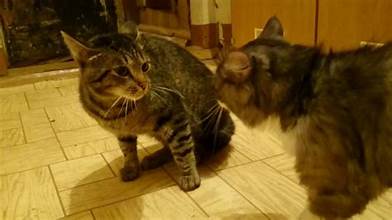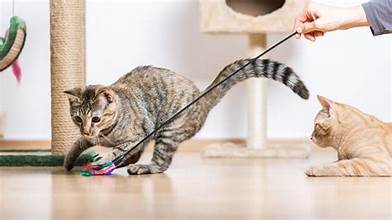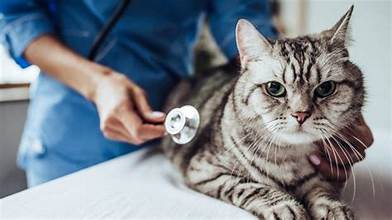An aggressive cat can be stressful, but there are ways to address the behavior and create a more harmonious home.
Here are some key points:
Understanding the Cause:
Fear as a Trigger:
Fear is a common trigger for cat aggression. You can prevent aggressive behavior in your cat by identifying and managing fear-inducing situations, such as introducing new pets or loud noises.

Play Aggression:
Remember that rough play can morph into aggression, especially with young kittens. Understanding this can help you be more cautious and prevent potential aggressive behavior.

Medical Issues:
A vet visit is crucial in cases of aggression. It can help identify any underlying health issues that might be causing your cat pain or discomfort, which can, in turn, lead to aggression.

Territorial:
Cats are territorial and might become aggressive towards other cats or people seen as threatening their space.

Addressing the Aggression:
Stay Calm:
Avoid yelling, hitting, or physically punishing your cat. It will worsen the situation.

Remove Yourself:
If your cat displays aggression, calmly remove yourself from the situation and let them cool down.
Positive Reinforcement:
Remember, rewarding calm and gentle behavior with treats, praise, or petting can be robust. This approach can make you feel hopeful and encouraged about addressing your cat’s aggression.

Environmental Enrichment:
Playtime:
Engage in daily interactive play sessions to expend energy and provide mental stimulation.

Provide Plenty of Space:
Ensure your cat has enough vertical space with cat trees and hiding spots to feel secure.

Separate Cats if Necessary:
If you have multiple cats, separate them with barriers if fights break out.

Consider a Professional:
Help from Experts:
If the aggression is severe or you struggle to manage it, consult a veterinarian or animal behaviorist for personalized guidance.

Remember, patience and a positive approach are essential. By identifying and addressing the cause calmly, you can help your cat overcome its aggression.
This reminder can reassure you and make you confident in your ability to help your cat.
Here are some resources that you might find helpful:
American Society for the Prevention of Cruelty to Animals (ASPCA) https://www.aspca.org/pet-care/cat-care/common-cat-behavior-issues/aggression-cats
Cornell University, College of Veterinary Medicine, offers insights into feline behavior problems: https://www.vet.cornell.edu/departments-centers-and-institutes/cornell-feline-health-center/health-information/feline-health-topics/feline-behavior-problems-aggression
Disclosure: This page contains affiliate links to Bubblespaw.com, Amazon.com, Petrichorpaws.com, and Lepuppino.com. We might receive a commission if you follow them and purchase anything from the recommended products. I can assure you that I never recommend anything I don’t trust. Thanks for supporting positvelypets.com!




